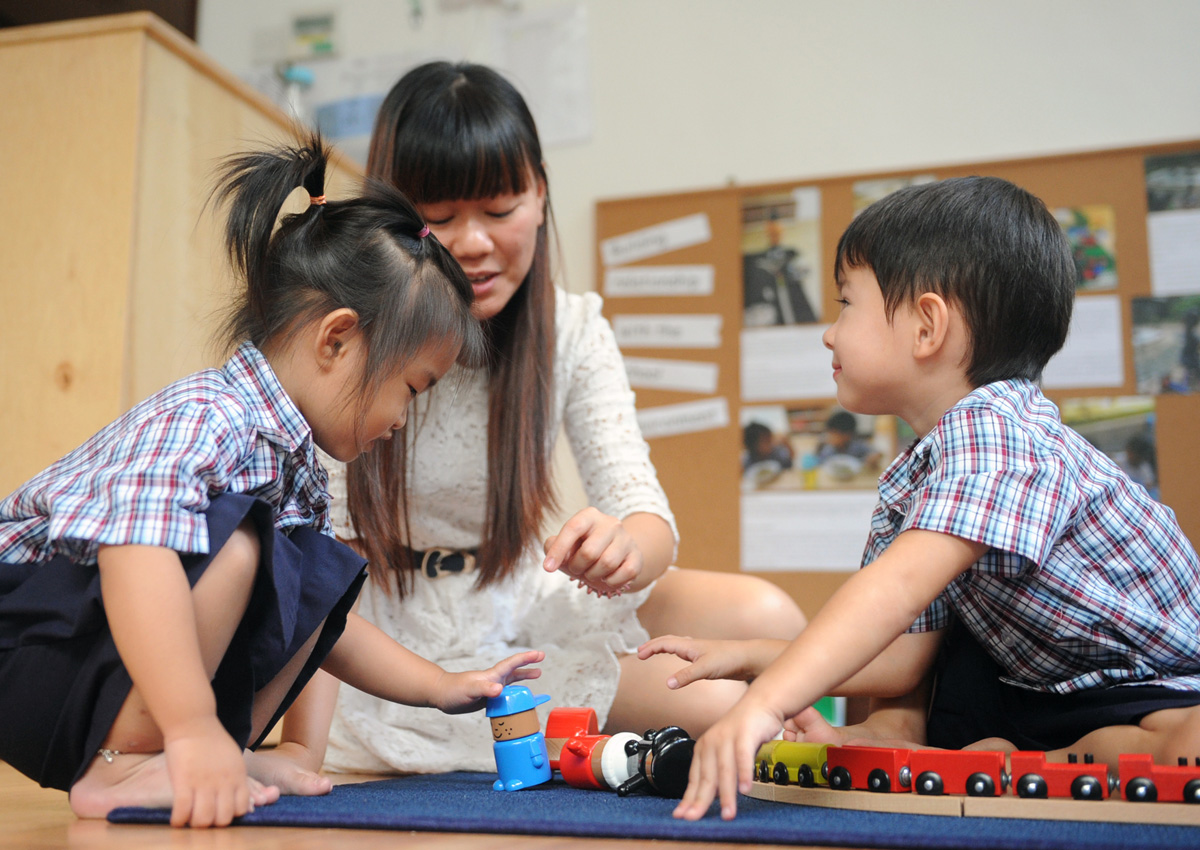AMID a manpower shortage in the pre-school sector, teachers are becoming principals at a younger age. They usually have less life experience but need to supervise teachers and keep up with various changes in the sector.
To help principals to be more effective leaders, and ultimately improve the quality of pre-school services, the Lien Foundation yesterday launched a leadership programme called Principal Matters.
It involves four partners: NTUC’s Seed Institute, the largest pre-school training provider here; Wheelock College, a top pre-school training institute in the United States; global human resources consultancy Korn Ferry Hay Group; and SIM University (UniSIM).
The programme is based on a new model of behavioural skills, such as managing emotions under challenging conditions and energising others to innovate. The model was developed by the Korn Ferry Hay Group after interviews with pre-school leaders here.
The programme costs $2.7 million and will be free for the 150 selected principals, or close to a 10th of all pre-school principals here.
It comprises several segments spread over six months, including a 12-day trip to Boston, where Wheelock College is based, and mentorship by veteran pre-school leaders here.
UniSIM will also conduct a study of the principals’ work and progress, to better understand local leadership practices.
Overseas research has shown that school leadership is second only to teaching, among factors that affect learning outcomes.
But it has become more challenging to be an effective principal in recent years, said experts.
The number of childcare centres here has grown by almost half since 2010, and teachers have been promoted to be principals at an earlier age.
If they have the required qualifications, they can be principals with just two years of teaching experience.
Lien Foundation chief executive Lee Poh Wah said: “In a few short years, they go from managing a class to having to manage a business – from supervising and retaining teachers, to engaging increasingly well-educated parents who are often older than them.”
Seed Institute academic director Ho Yin Fong also believes the proportion of young principals has been increasing in the industry.
Speaking about principals in centres run by NTUC First Campus, the second-largest childcare operator here, Ms Ho estimates their median age is in the 30s, down from the 40s about 10 to 15 years ago.
Korn Ferry Hay Group managing consultant Tan Khai Ling said younger principals may be less aware of their own feelings and find it harder to control them under stressful conditions.
Chiltern House principal Iris Lim, 42, agreed, though she noted younger ones may have an advantage in connecting with young teachers.
Lee Chin Yen, 48, a principal for about nine years at Agape Little Uni, is keen to apply for the programme. “It’d be good to learn from mentors and overseas experts.”
Principals with three to 10 years of experience have until May 18 to apply to be part of the first cohort of 25. Those interested can apply at www.principalmatters.sg
goyshiyi@sph.com.sg

Get MyPaper for more stories.






